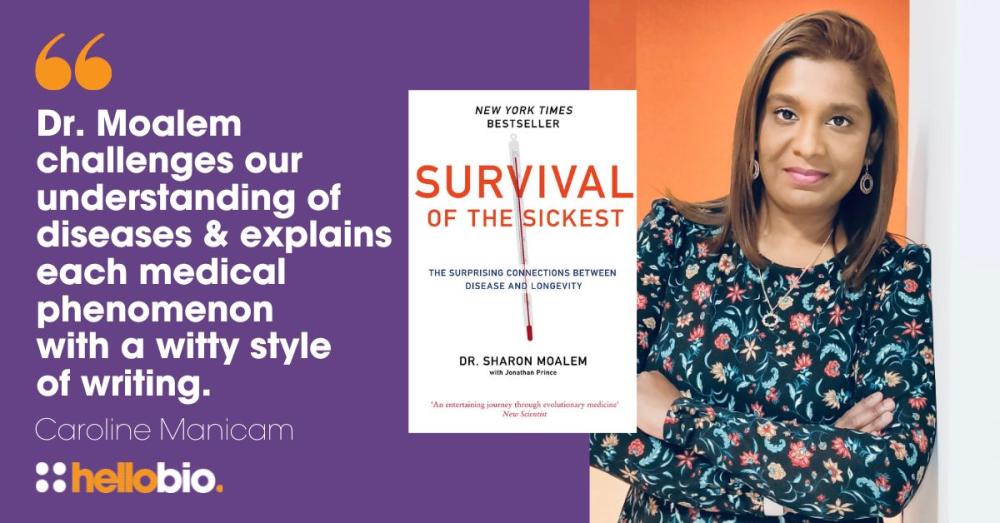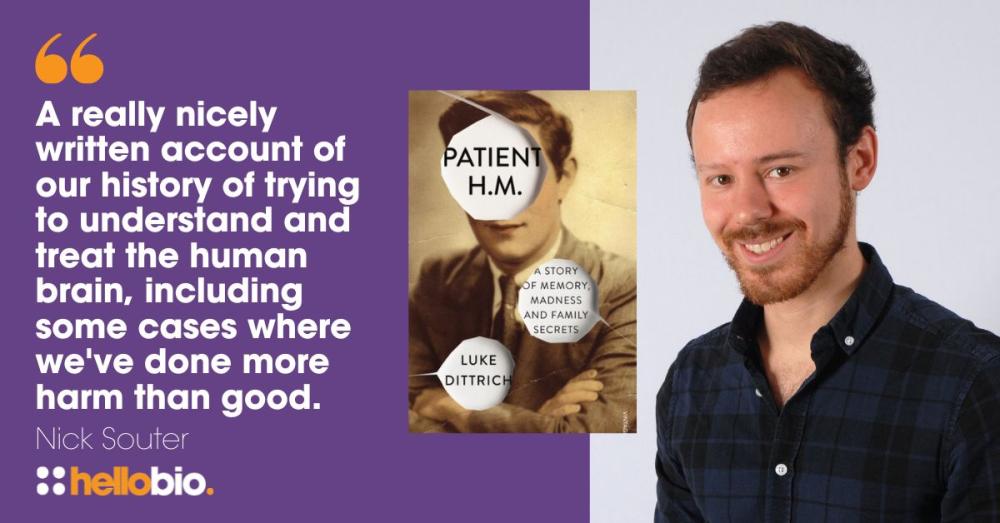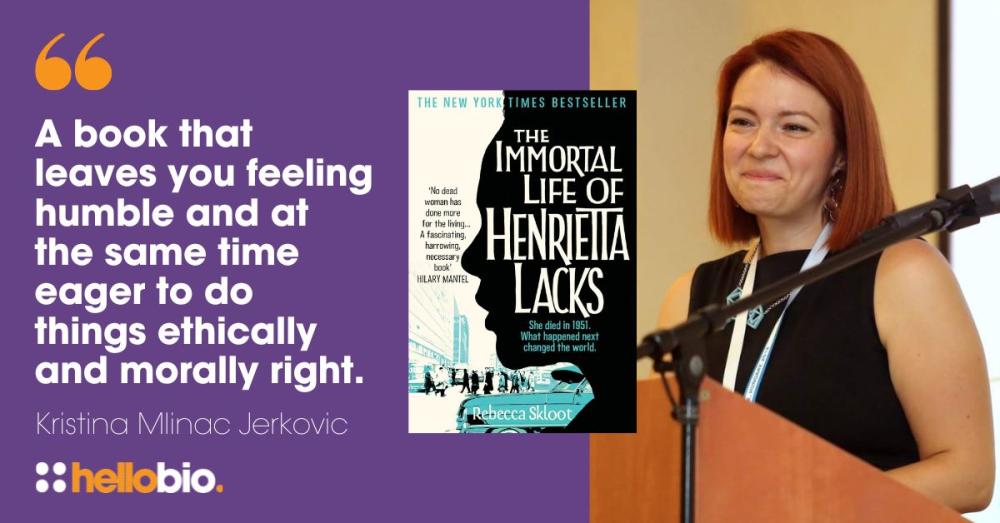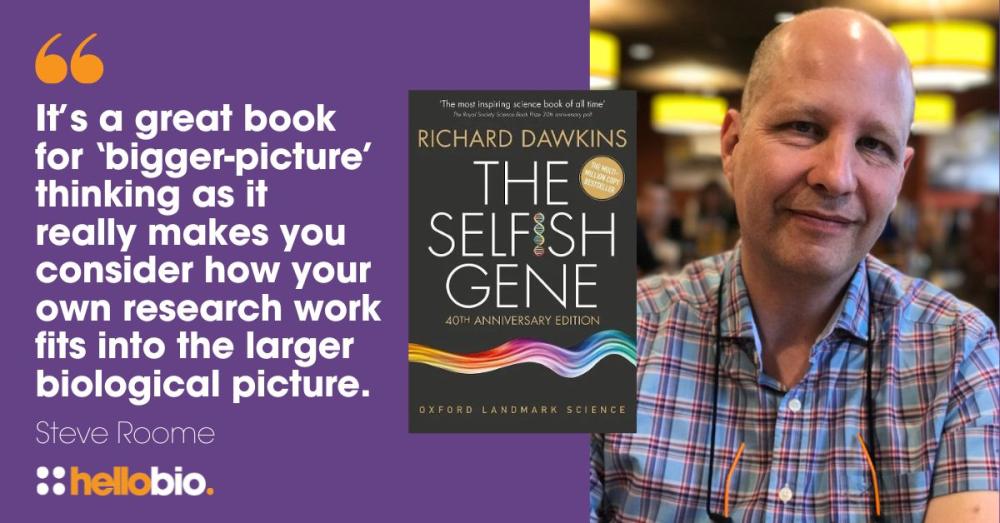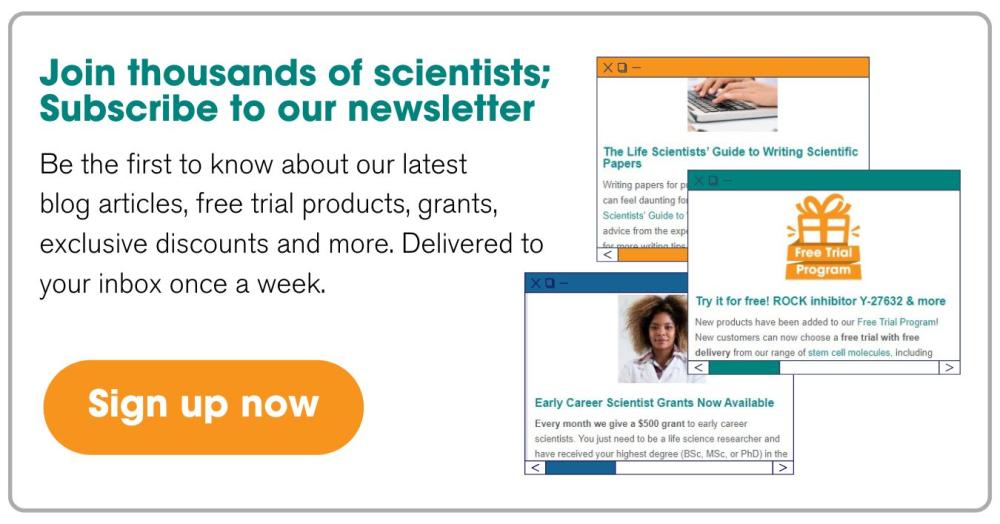10 Great Reads as Recommended by Researchers
We know life scientists spend a lot of time with their noses deep in the latest research papers or science journals to keep on top of current trends in STEM. Reading is an important part of any researcher's life, but when it comes to brilliant books, which ones would they recommend to others?
We asked life science researchers to tell us about their favourite books and why they consider them essential reading for all scientists! They helped us to build a fascinating book list filled with variety and wonder, covering an array of different topics from autobiography to electrophysiology, the consciousness of the octopus to the longevity of disease!
From stories we know well, to authors we’ve never come across, check out our brand new list of great reads as recommended by researchers!
1) Survival of the Sickest: The Surprising Connections between Disease and Longevity by Sharon Moalem
My all-time favourite book is the ‘Survival of the Sickest: The Surprising Connections between Disease and Longevity’ by Sharon Moalem. I first read this book as a PhD student and have since reread it many times, with a fresh new perspective each time. In this book, the author elegantly explores the connection between several common ailments (e.g., hemochromatosis, diabetes, sickle cell anaemia) and the survival of our ancestors by expertly elucidating each case study from an evolutionary standpoint. One of my favourite things about this book is how Dr. Moalem masterfully challenges our current understanding of diseases and explains each medical phenomenon (including from his personal experience as a neurogeneticist and physician) with a witty style of writing, which can be seen in the titles of the book chapters like ‘Hey, Bud, Can You Do Me a Fava?’ and ‘Jump into the Gene Pool’. In short, the Survival of the Sickest is one of my top five favourite pieces of literature and as a scientist, I thoroughly enjoy reading this book owing to the fun way the author manages to convey mesmerizing insight into different medical conditions as ‘a leg up in the survival sweepstakes’ using hard data based on scientifically sound experiments and observations. - Caroline Manicam, PI at the Department of Ophthalmology, University Medical Center Mainz, Germany
2) Foucault’s Pendulum by Umberto Eco
I don’t read much, but one book I would probably recommend is ‘Foucault’s Pendulum’ by Umberto Eco. The many references to conspiracy theories show how people can connect facts together and come up with an idea that they know can’t be true but end up being persuaded to believe it. The parallel I draw for researchers is that it's like a warning not to get too blinkered in the way they want to understand their own results, but to know when to stop and go down a different rabbit hole. - Mark Hunt, Nencki Institute of Experimental Biology, Poland
3) In Search of Memory by Eric Kandel
For researchers in the field of neuroscience, I would thoroughly recommend ‘In Search of Memory’ by the Nobel Prize winner Eric Kandel. It’s partly an autobiography (starting with him fleeing Nazi-occupied Austria with his family), partly a historical account of his pioneering discoveries into the molecular basis of learning and memory, and partly an overview of our current understanding of how the mind works. - Dr Ruth Carmichael, University of Exeter, UK
4) Patient H. M.: A Story of Memory, Madness, and Family Secrets by Luke Dittrich
For anyone interested in neuropsychology, I'd recommend 'Patient H. M.: A Story of Memory, Madness, and Family Secrets' by Luke Dittrich. It's a really nicely written account of our history of trying to understand and treat the human brain, including some cases where we've maybe done more harm than good. - Nick Souter, a postdoctoral researcher at the University of Sussex, UK
5) Other Minds: The Octopus, the Sea, and the Deep Origins of Consciousness by Peter Godfrey-Smith
Another book I would recommend is 'Other Minds: The Octopus, the Sea, and the Deep Origins of Consciousness' by Peter Godfrey-Smith, which dives into the fascinating ways in which cephalopods, like octopuses, experience the world, and their capacity for conscious experience. - Nick Souter
6) The Immortal Life of Henrietta Lacks by Rebecca Skloot
A book that certainly leaves you feeling humble and at the same time eager to do things ethically and morally right is 'The Immortal Life of Henrietta Lacks' by Rebecca Skloot. I actually got it as a gift and I’m so glad that I did! - Kristina Mlinac Jerković, an Associate Professor at the University of Zagreb, Croatia
7) Robin Cook: American physician and novelist
I’ve always enjoyed the medical thriller books written by Robin Cook. A few years ago the author contacted me for some information about Tetrodotoxin as he was doing research for his latest novel. When it was finally published, he sent us a copy as a thank you! He's a fascinating man who has worked as a surgeon, an opthalmologist and even an aquanaut! His books are fast-paced medical/science crime dramas. - Sam Roome, co-founder of Hello Bio
8) We Are Electric: The New Science of Our Body's Electrome by Sally Adee
For researchers with an interest in electrophysiology, I would recommend 'We Are Electric: The New Science of Our Body's Electrome' by Sally Adee. I am only halfway through it at the moment, but it has been really interesting to learn about the history of electrophysiology. I must thank Damian Bell from Sophion Bioscience who recommended this book on LinkedIn! - Sean Brennan, an Associate Scientist at the University of Liverpool, UK
9) The Selfish Gene by Richard Dawkins
One of my favourite books in 'The Selfish Gene' by Richard Dawkins. It’s a real classic in evolutionary biology which has changed the way a lot of scientists think about natural selection. It’s a great book for ‘bigger-picture’ thinking as it really makes you consider how your own research work fits into the larger biological picture. Dawkins writes in such a clear and accessible way that I've learned a lot from his writing style too. A must-read for those working in genetics, behaviour, and even neuroscience! - Steve Roome, co-founder of Hello Bio
10) Fiona Erskine: British engineer and crime writer
I really enjoy the books by Fiona Erskine. She is a British engineer who now writes mystery and crime novels featuring Dr Jaq Silver as the strong female lead. She delivered a seminar to us during my time at Sheffield. I heard all about her career and how she got into writing from a chemical engineering degree. For non-fiction books, it would have to be the 'How My Body Works' series of educational books from the 90s/00s! I would read the books, watch the videos (on VHS) and each book came with a body part to make a skeleton model complete with organs! - Caroline S Taylor, a Teaching Fellow at the University of Leeds, UK
More books, poems & podcasts from Hello Bio
If you’re looking for more great recommendations, why not check out these other fun articles from Hello Bio! We’ve shared some great book ideas, podcasts recommendations and even science-themed poetry to keep you entertained on your commute to the lab!
- Ten Science Books You Need To Read
- Ten Science Poems You Need To Read
- Our Top 10 Science Podcasts
- 10 Great Podcasts by Scientists
_______________________________
If you enjoyed this article, why not check out the other resources available on our blog. We are passionate about supporting life scientists including early career life scientists and PhD students - with really low-priced reagents, antibodies and biochemicals, early career scientist grants, and resources to help with both personal and professional development. We know how tough it is - so we hope you find these helpful!
More General Support for Life Scientists
For advice on wellbeing, dissertations, presenting at conferences, wellbeing, PhD support, networking and lots more, we have a huge range of articles to help - just click below:
Save up to 50% on our high purity reagents...
When you get to the stage of planning your experiments, don't forget that we offer a range of low-cost, high-purity antibodies, biochemicals, reagents and fluorescent tools (yes - they really are around half the price of other suppliers!) You can use our Quick Multi-Search Tool to search for lots of products in one go, and the range includes:
- Enzyme inhibitors and activators
- Chemogenetic ligands
- Ion channel modulators
- GPCR & ionotropic receptor ligands
- Cell biology reagents & biochemicals
Technical resources
Try our Molarity Calculator: a quick and easy way to calculate the mass, volume or concentration required for making a solution.
Try our Dilution Calculator: an easy way to work out how to dilute stock solutions of known concentrations
We also offer a comprehensive range of technical resources including antibody protocols and methods, product guides and mini-reviews:
And finally, don't forget to check back in with our blog regularly for our latest articles. If there’s something you’d love to contribute to the community, whether that’s an interview or article, drop us a line at hello@hellobio.com
---






